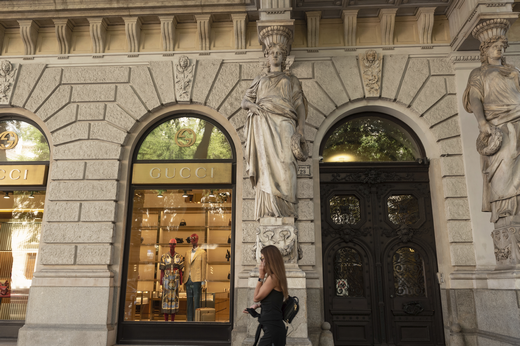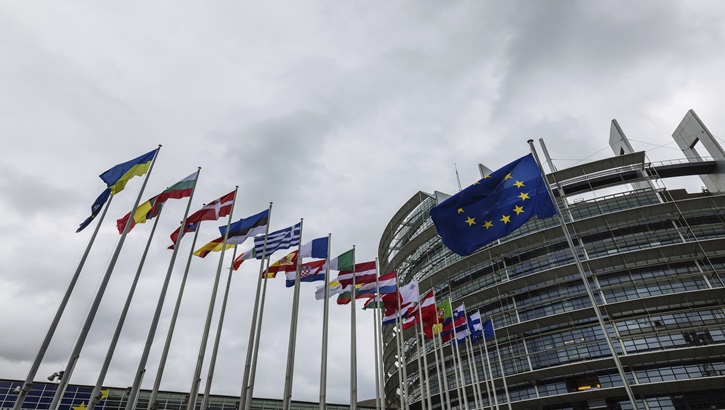This article is part of our World Cup 2018 Investment Series, one top market pick from each of the eight Groups – but instead of comparing sporting prowess we outline the best investment prospect.

2014 World Cup winners Germany entered the tournament as joint favourites with Brazil, but fans of Die Mannschaft had a rude awakening when outsiders Mexico beat them in their first game.
Convincing early displays from Spain and France have nudged them ahead of Germany in the bookmakers’ rankings. Nevertheless, most would be surprised if Germany are not in the semi-finals or finals.
Germany has been the powerhouse of European football and its economy for many years. German Chancellor Angela Merkel is also Europe’s longest serving political leader and is respected on the world stage. This political stability has helped strengthen the case for equity investing in the Eurozone in recent years and the currency bloc has relied on Germany’s manufacturing strength to drive growth. Returns from European equities have been strong in recent years, with Germany's Dax outperforming other indices.
There are recent signs, however, that the German economy may be running out of steam. Fourth quarter 2017 growth of 0.6% - double that of Britain’s – was followed by growth of just 0.3% in the first quarter.
Germany’s dominance of the corporate landscape is also under threat: the emissions scandal at VW (VOW) has damaged the reputation of Germany industry, while problems at Deutsche Bank (DBK) rumble on.
However, companies such as BMW (BMW) and Adidas (ADS) are dominant within their industries and the case for the case for active investing in Europe remains compelling, explains Natalia Wolfstetter, director of fund analysis at Morningstar.
How Can Investors Back Germany?
There are a number of passive funds that track the Xetra Dax, including iShares Core Dax ETF (EXS1), which has an ongoing charge of 0.16%. The fund has a Morningstar Analyst Rating of Bronze and has a three-year annualised return of 11.85%, according to Morningstar data.
Among single-country funds, Fidelity Germany fund has a five-star and Bronze Rating from Morningstar. This fund has a three-year annualised return of just over 15%. “The fund remains a quality choice,” according to Morningstar analyst Barbara Claus.
Christian von Engelbrechten took over as manager in early 2011 from Alexandra Hartmann. “Although von Engelbrechten's tenure of six-and-a-half years is relatively short among our positively rated German equity funds, he has proved to be a passionate investor who has consistently demonstrated in-depth knowledge about his portfolio holdings. We think the fund’s solid record is repeatable given the well-founded and consistently implemented bottom-up approach.”
Highly rated European funds are dominated by German companies; an investment in Europe is by definition a way of backing the Germany economy. For example, Gold-Rated open-ended fund Jupiter European has payment processing firm Wirecard AG (WDI) as its largest holding, with nearly 10% of the fund. It also invests in Adidas and Deutsche Boerse (DB1). The fund’s three-year annualised performance is 18.7%.
Closed-end Jupiter European Opportunities (JEO), which is run by the same manager, has almost 30% of the fund invested in Germany.
Other investment trust options include Bronze-Rated Henderson European Focus Trust (HEFT). Managed by John Bennett since 2010, the trust’s share price has risen over 8% over three years on an annualised basis. Germany is the largest country weighting in the investment trust with 16.3%, with German software firm SAP (SAP) in the top five holdings.
Morningstar analysts have some reservations about the trust after the departure of three team members in January 2018. Downgrading the trust to Bronze from Silver, analyst Peter Brunt said: “We acknowledge Bennett's experience and believe that he is motivated to steady the ship, but team departures are clearly a loss here.”
Fees are also a concern: “The fund's ongoing charge is reasonable, but the addition of a performance fee makes the pricing structure less competitive relative to alternatives."






























